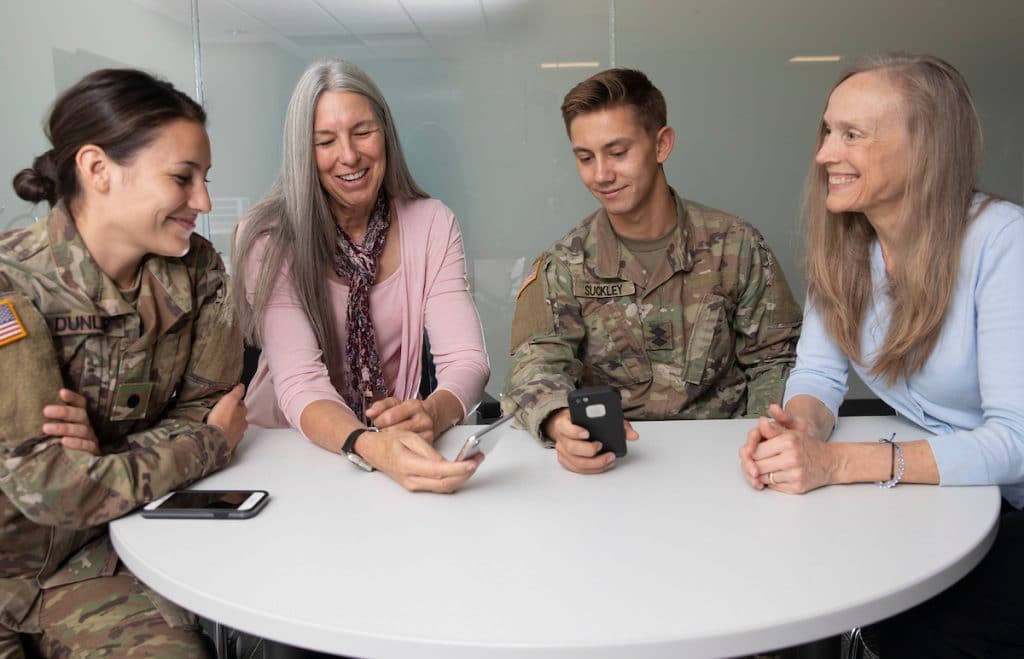In addition to combat-related health risks such as post-traumatic stress disorder (PTSD), military personnel face ongoing stressors such as separation from family and frequent relocation. When coping resources fall short, they are at risk for negative personal and occupational health outcomes such as sleep disturbance, health behaviors and anxiety.
Improving the quality of life for military personnel is the goal of a new smartphone app being developed by Northern Arizona University psychology professors Ann Huffman and Heidi Wayment. The two were awarded a $1.4 million Department of Defense grant for a project to improve the psychological health and resilience of military personnel.
This project will adapt their previous research on the concept of the “quiet ego” to a military setting, Wayment said. This concept, which Wayment and another colleague developed, centers on developing an identity that incorporates others without losing the self.
“It values balance, and is neither excessively self-focused nor excessively other-focused,” Wayment explained.
Unlike other popular interventions such as mindfulness, the quiet ego approach may be more responsive to work-related stressors. Demonstrated benefits of a quiet ego include personal growth and greater compassion for the self and others.
“We think the quiet ego approach may be especially relevant for the military population because it capitalizes on an adaptable set of self-management strategies for dealing with all types of work and family stressors, not just specific demands such as combat exposure, or specific disabilities like traumatic brain injury,” Huffman said.
App-based interventions
Huffman and Wayment will first experimentally examine how well a brief, non-spiritual, self-managed intervention strengthens personal and occupational resources in a military setting. Based on the results, they will develop an app-based intervention that reminds users of what it means to have a self-identity rooted in balance and growth—a quiet ego. A large-scale experiment will assess the app’s effectiveness.
“Members of the military cope with all types of work and family stressors,” Wayment said. “We hope this project will deliver a phone-based intervention that helps them improve their own health and resilience.”
Huffman’s primary research interests include the work-life interface, high-stress occupations, occupational health and workplace diversity. Wayment has expertise in stress and coping, self-identity, sports psychology and health behavior.
Kerry Bennett | Office of the Vice President for Research
(928) 523-5556 | kerry.bennett@nau.edu




